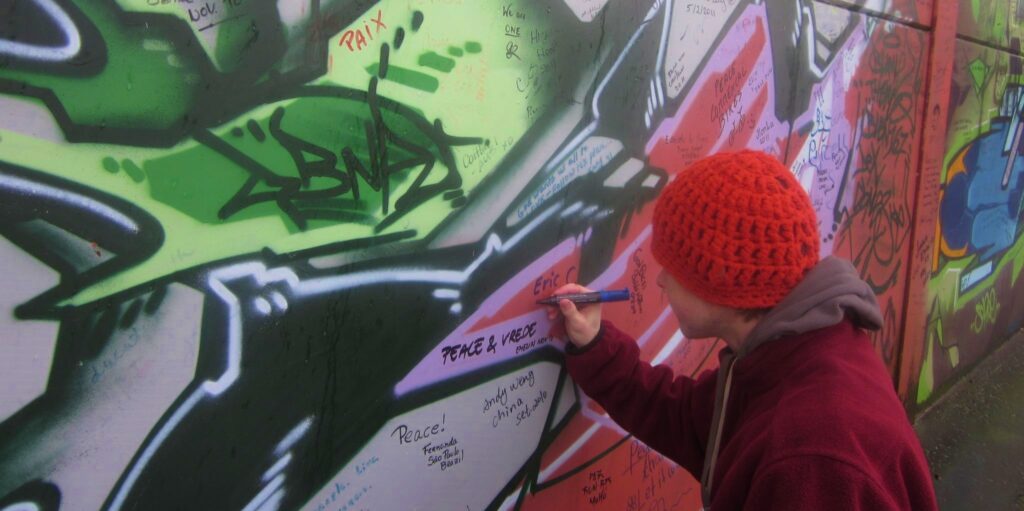The first time flying by myself was during my senior year at Clark University, when I embarked on a semester abroad at the University of Stirling. I remember talking to friends about feeling very nervous about the upcoming semester, and they said that it is normal to be nervous about something unknown. They advised me to embrace the uncertainty. This concept was new to me, but it helped to create a wonderful experience in Scotland.
When I got to Stirling, I moved into a dorm with most of the other exchange students.
Initially, like with all adjustments, I found myself struggling socially, not sure as to how to introduce myself, or whether it would be a good idea to disclose my Asperger’s with anyone.
Luckily, when I had arrived, there was the student activities fair. I used this opportunity to join the radio society, Air3 Radio, where I designed my own radio show.
I called my show “This Aspergian Life” and used it as an educational tool about autism. On the show, I talked about autism, what the signs are, how people have lived with it, and dedicated an episode to women on the spectrum. I also frequently read John Elder Robison’s memoir, “Look Me In The Eye,” and interviewed another exchange student from Australia about growing up with an autistic sibling. This experience earned me an award for Air3 Radio Best Male at the media society joint awards show, as well as nominations for Best Radio Show and Best Newcomer.
In addition to these new friends, I made lasting friendships among the other exchange students. I joined them for regular karaoke (though I was too shy to sing), as well as Scottish ceilidh (pronounced Kaylee) dancing and Bonfire Night. I even joined other students for a weekend trip to the west coast of Scotland, specifically Oban and the Isle of Mull all the way to Iona, where the Book of Kells was written. Though I was sometimes introverted, I was willing and able to get out of my comfort zones and get to know my fellow exchange students. This allowed me to make friends with them, many of whom I am still in touch with. Along with these group trips, I also went exploring on my own, spending my 22nd birthday at the Tate Modern in London, followed by a train to Belgium and the Netherlands. I also did solo trips in Ireland, visiting Belfast and the Cliffs of Moher, and visited the museums of Dublin.
For my classes at the University of Stirling, I met with the Disability Resource office to discuss what sort of accommodations I would need for my classes. The disability staff were helpful in providing me with reasonable accommodations, which included extended time on tests in a separate, quiet space. I had also been in contact with both the study abroad offices at Stirling through Clark University about my Asperger’s, which I included on the study abroad application. I also spoke with students at Clark who had studied at Stirling so that I could get a better sense of what to expect from my time there, and it was helpful that most of these students had a general sense of awareness of my Asperger’s.
Around this time, I was told that part of the reason why I was able to succeed in Stirling was because of the university’s previous study abroad coordinator, who was both blind and openly gay. Being aware of difference, he helped foster a culture of tolerance that impacted many parts of the university, and still do. Hearing this story resonated with me.
It showed the necessity of hiring disabled people in key positions, so as to craft environments where disabled people, and members of other marginalized communities, are encouraged to contribute to the broader community.
If you have a disability and want to study abroad, my main piece of advice would be, first, do it, and second, don’t be afraid to advocate for yourself, whether that may be with disability accommodations, a host family, or the students you are on exchange with. Work with your study abroad office and coordinators, both at home and abroad, to discuss reasonable accommodations. Be sure you have a good understanding of what accommodations you require, and how adequate the accommodation services offered by the study abroad program are. Do it at what level of comfort is right for you, but it never hurts to be open about who you are.

